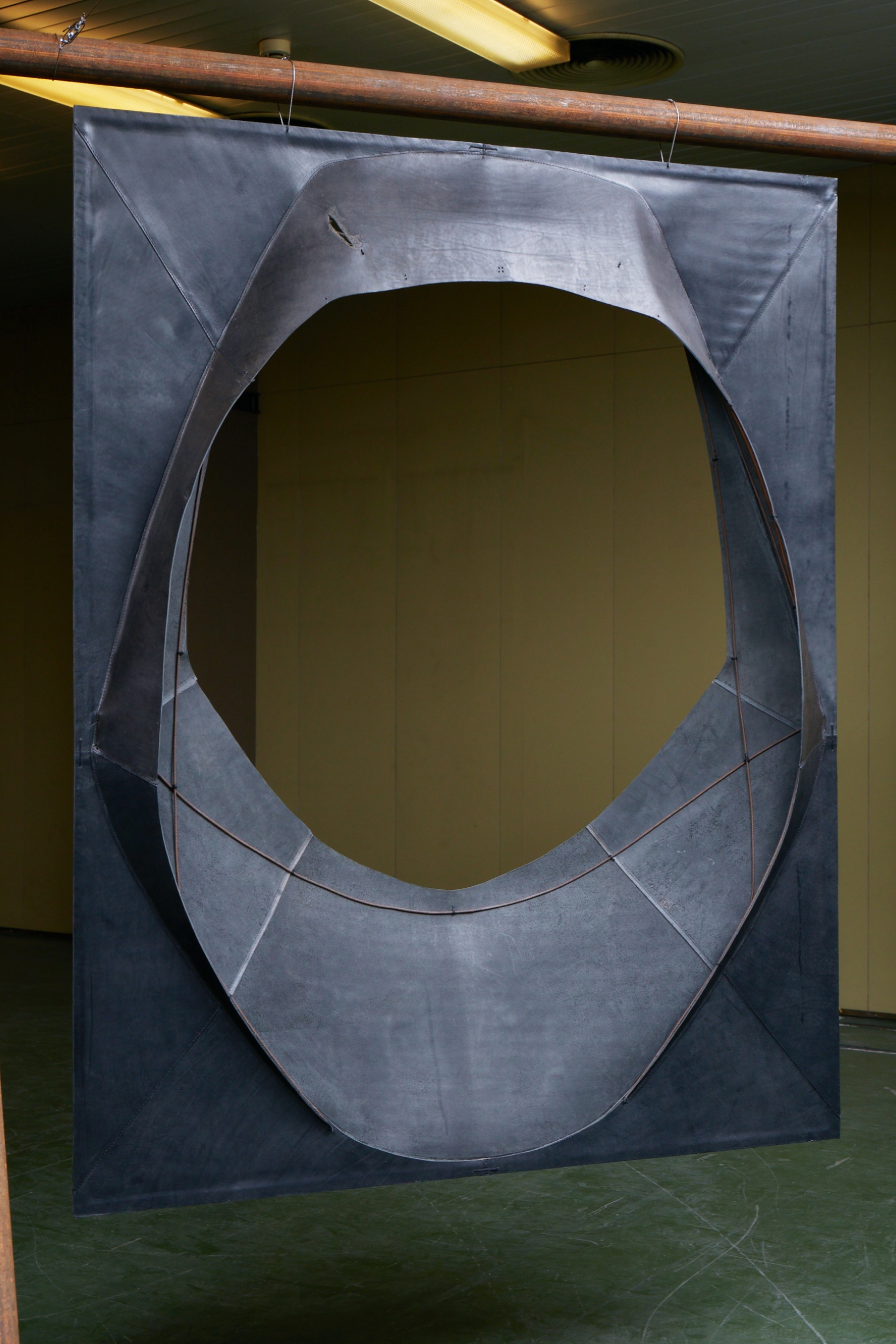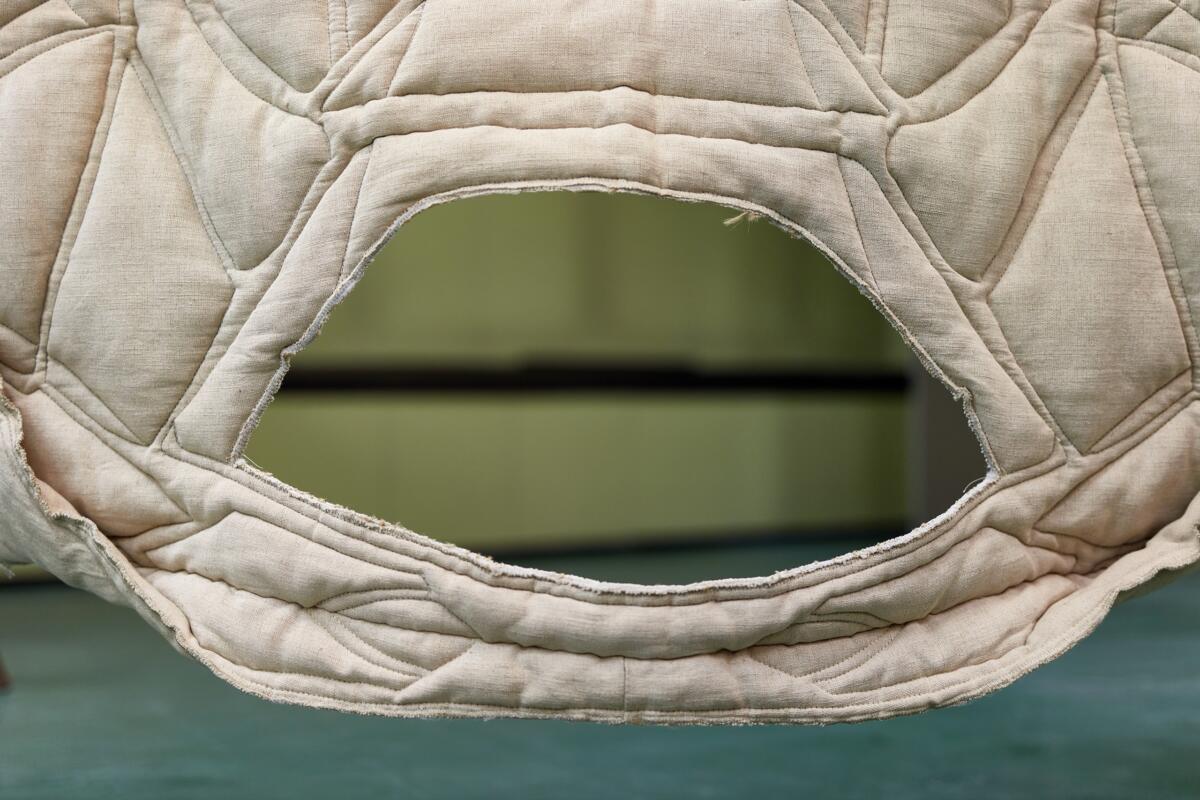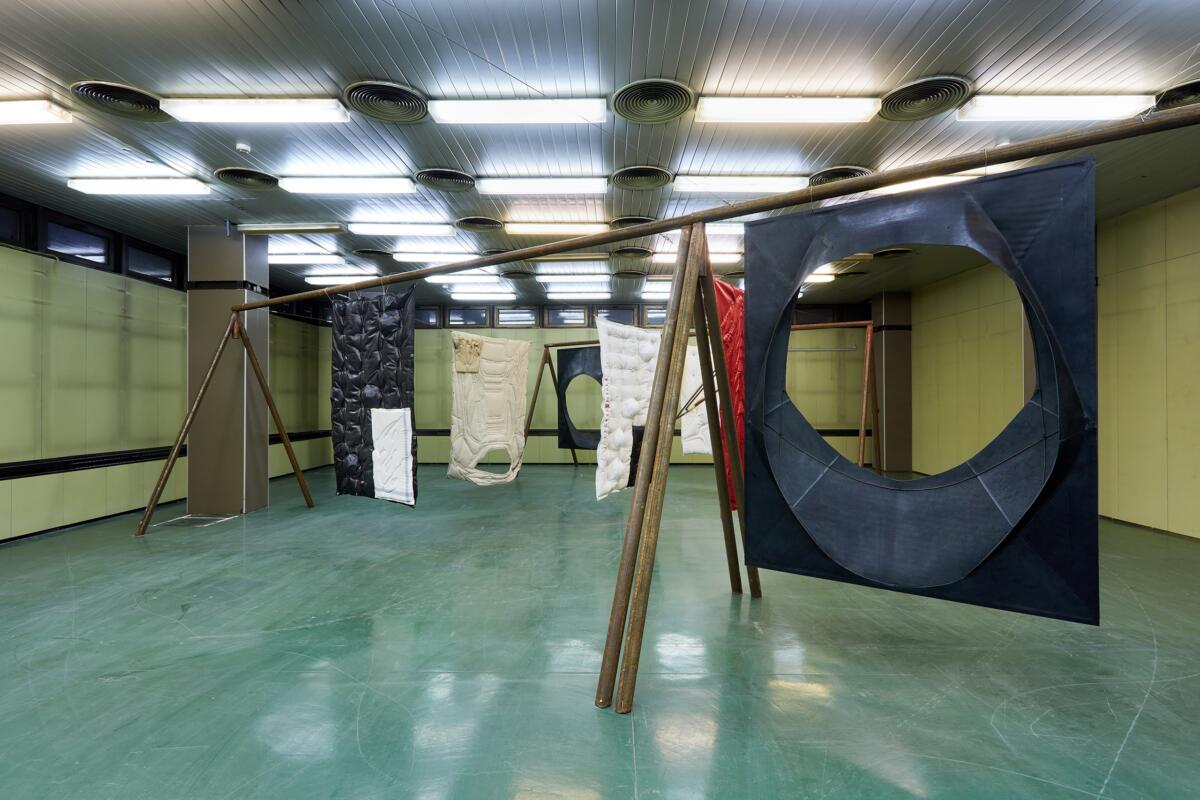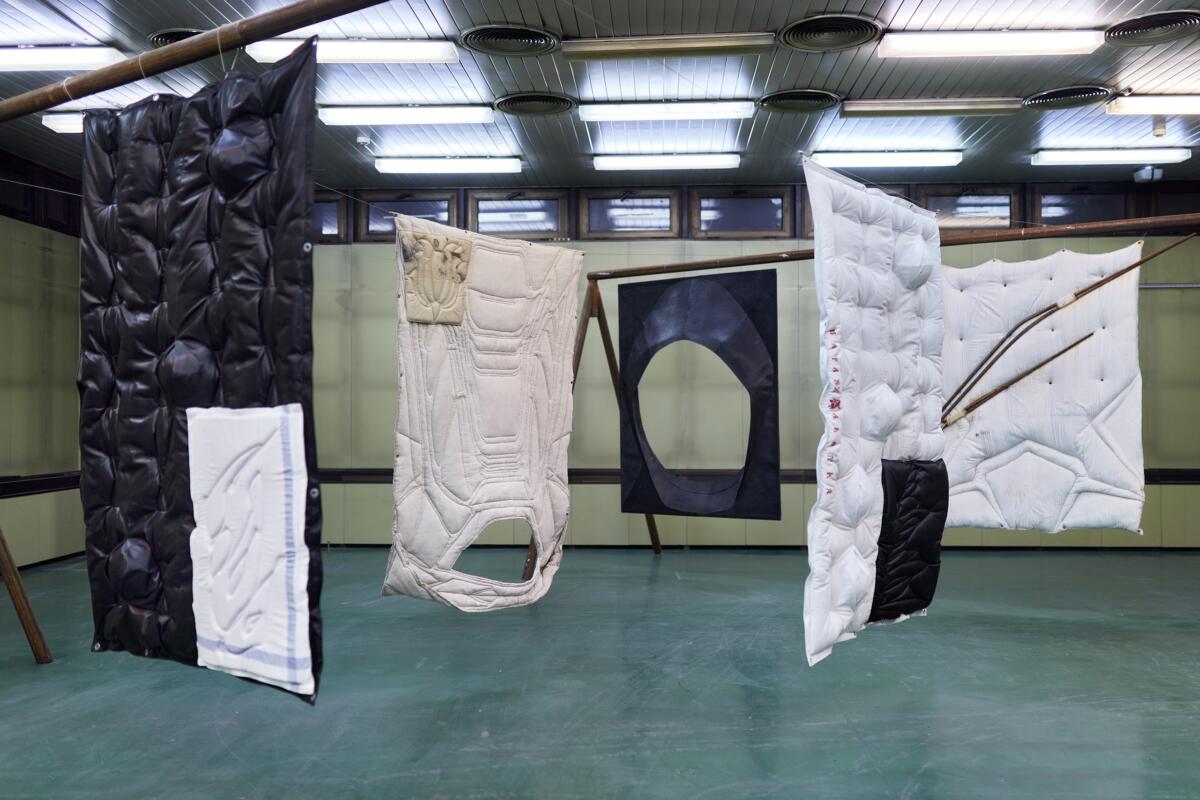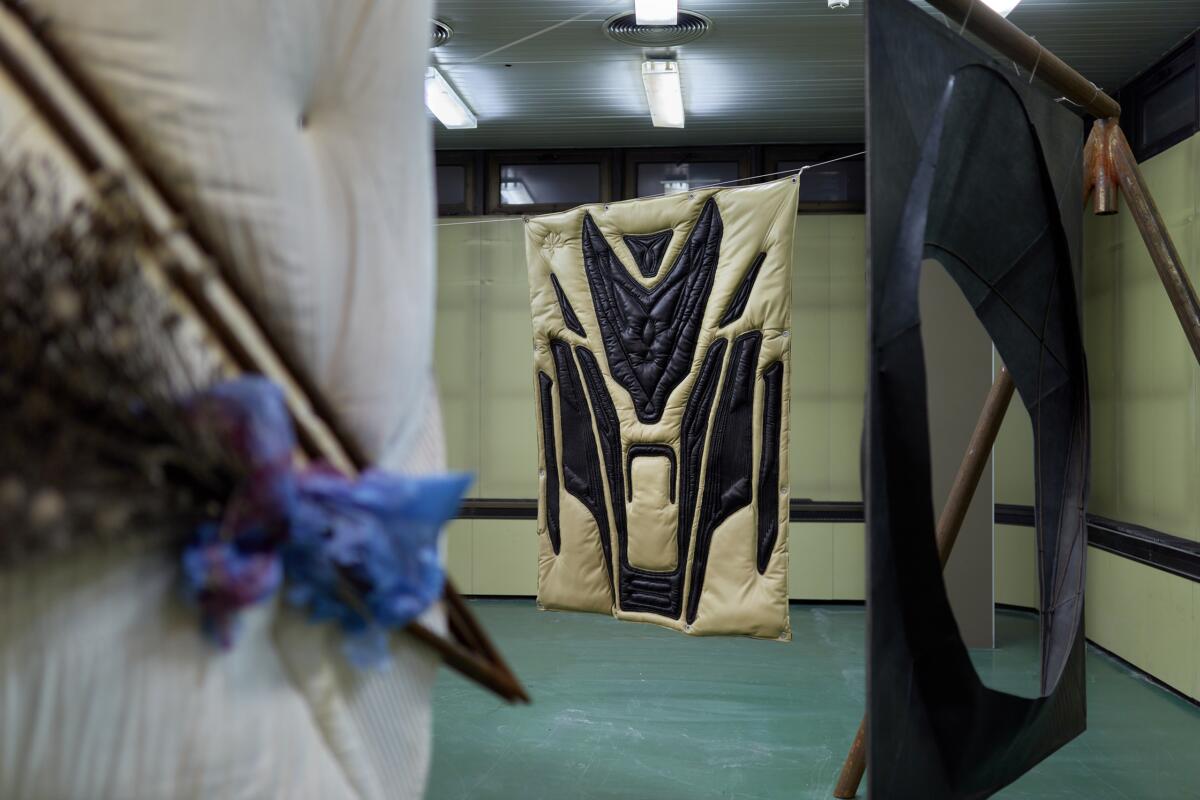
The hybrid character of the works created by Adrian Kiss (1990) in recent years has evolved from the synthesis of the sensuality of his artistic approach and the rationality of his creative process conceived of as design. While the former presupposes a contemplative, spontaneous openness, the latter implies an oriented and controlled process – the journey from sketch to finished object – in which the execution and completion of the materials by means of professional and applied techniques is at once complemented by the poetics of their inner sensuality. It is in this duality that Kiss’s unique narrative installations created in recent years are deconstructed and constructed, their thematic unity provided by the formulation of the human body in abstract forms, their medial basic tone by the extensive use of materials, meaningful in its diversity (leather, artificial leather, canvas, concrete, wood, ceramics), and their visual character by the appropriation of details and industrial design forms borrowed from the world of everyday objects and fashion.
The main motif of Kiss’s latest installation, which occupies the entire space, is a bedding-like object, the duvet, which has appeared in previous exhibitions, and which defines the structure of an entire environment this time. Both in its simple materiality and honest, everyday form, the duvet holds our attention with the sentimental allusiveness of the absence of personal memories and human presence, while also pushing it away with the distancing effects of its cool, streamlined, sci-fi-like design. Kiss’s assembled duvets can even be read as a summation of his work over the past few years. The sculptural quality of the three-dimensional objects derived from forms and design variations based on sketches is enhanced by the narrative concept of ‘location’: the installation, operating within the dramaturgies of excavation, hanging clothes to dry, and fashion show, is an event of emotionless catharsis and cathartic apathy. Its futuristic momentum is attenuated by a nostalgia that rises from the deepest depths.
Paradox is a substantial concept in Kiss’s art: we find it in the blending of archaic and futuristic qualities often used as a cultural topos, in the juxtaposition of coarse and delicate materials, and the contrast between streamlined design and irregular forms. Paradox, however, is not a complacent expression of an artistic trope for its own sake or of irritation roused by the tension between different sensations. Kiss’s oeuvre to date – sometimes theatrical, sometimes more restrained works and exhibitions – is interested precisely in eliminating contradictions: he encourages us to experience the interaction of paired qualities as natural, and to reconstruct a possible world through cowhide and concrete, flower bouquet and linen, trousseau and automotive design. In this sense, while the result of conscious scenic design, the elaborately detailed installation (enhanced by spontaneous solutions and coincidences) seeks naturalness: it presents itself as an alternative, speculative situation (as a fictitious fact) with unwavering confidence in all its elements, authoritatively and realistically (as factual fiction).
This fiction is constructed through appropriation, using various sources of inspiration, such as excerpts from internet image searches and downloaded images: the image of drying clothes screenshotted from the Chernobyl series, the ‘wet installation’ by the also Romanian-born Ana Lupas from the seventies, Ferrari design, biker stickers, fragments of anime drawings, leather jacket tailoring patterns, leather furniture design. Kiss’s personal mythology includes phantoms of the industrial environment of his childhood in Balánbánya and the debris of a burnt-out stable, as well as the memory of his partner’s great-grandparents in the form of inherited, century-old duvet covers. The duvets and the iron structure are products of a wild imagination: the huge carpet hangers appear from a child’s perspective as giant, monstrous constructions, while the site of hanging clothes out to dry evokes associations of playgrounds. Arranged as utilitarian objects in the situation of hanging out to dry, on closer inspection, the duvets appear to be shrouds that preserve imprints, don masks and become anthropomorphised characters, kinky abstractions or magical passages. They are all objects of unfamiliar familiarity, of fiction that is, shaped and filled by the imagination. In this way, paradoxes actually give form to the lyricism inherent in the experience of time and reality for the visitor. They give form to the relation to the passing of time, the relationship between our inner perception saturated with sacral elements, and impermanent everyday reality, our inner journey between the looming past and the uncertain future, the relationship between external aggressiveness and inner affections. To the natural transit-experience of life.
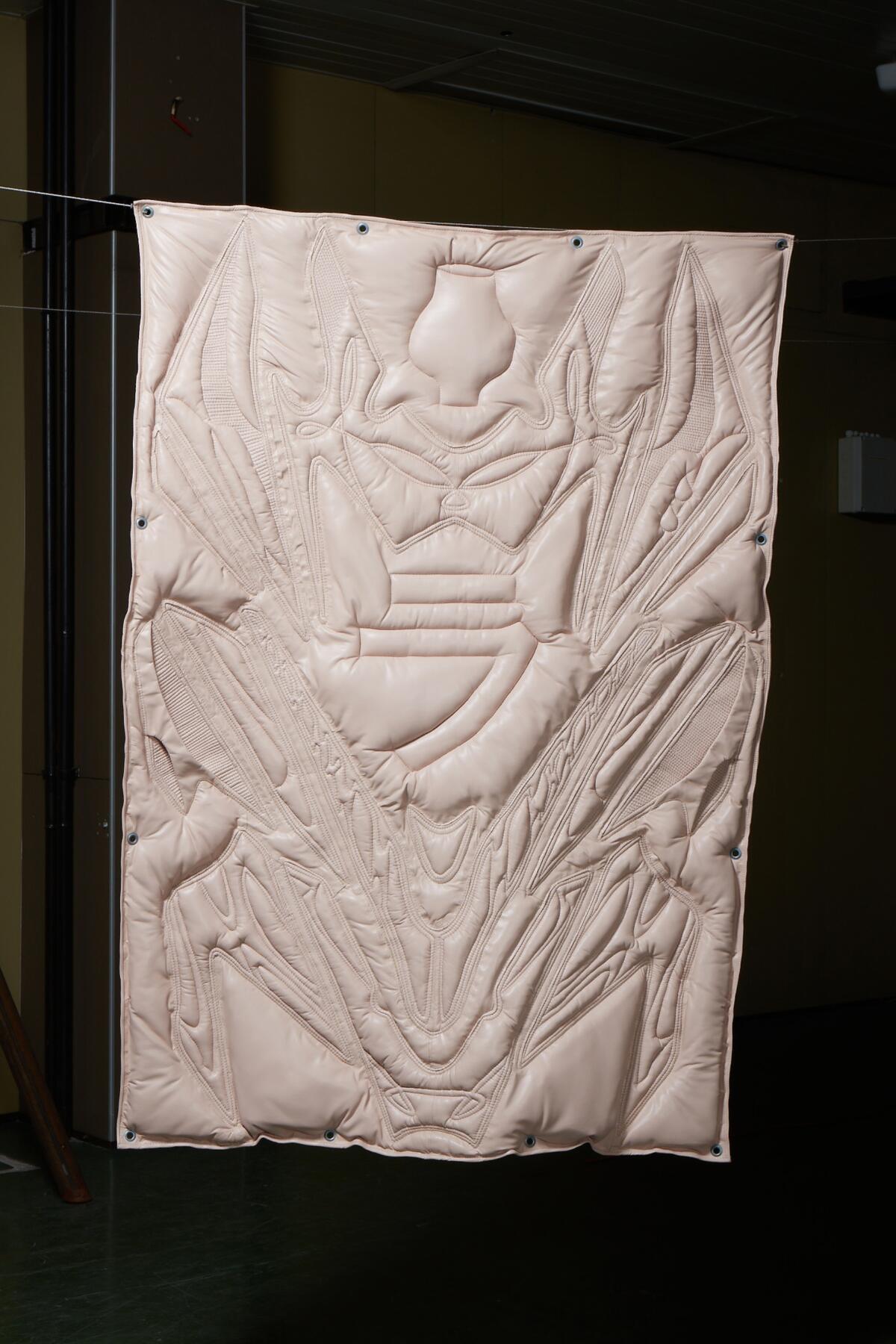
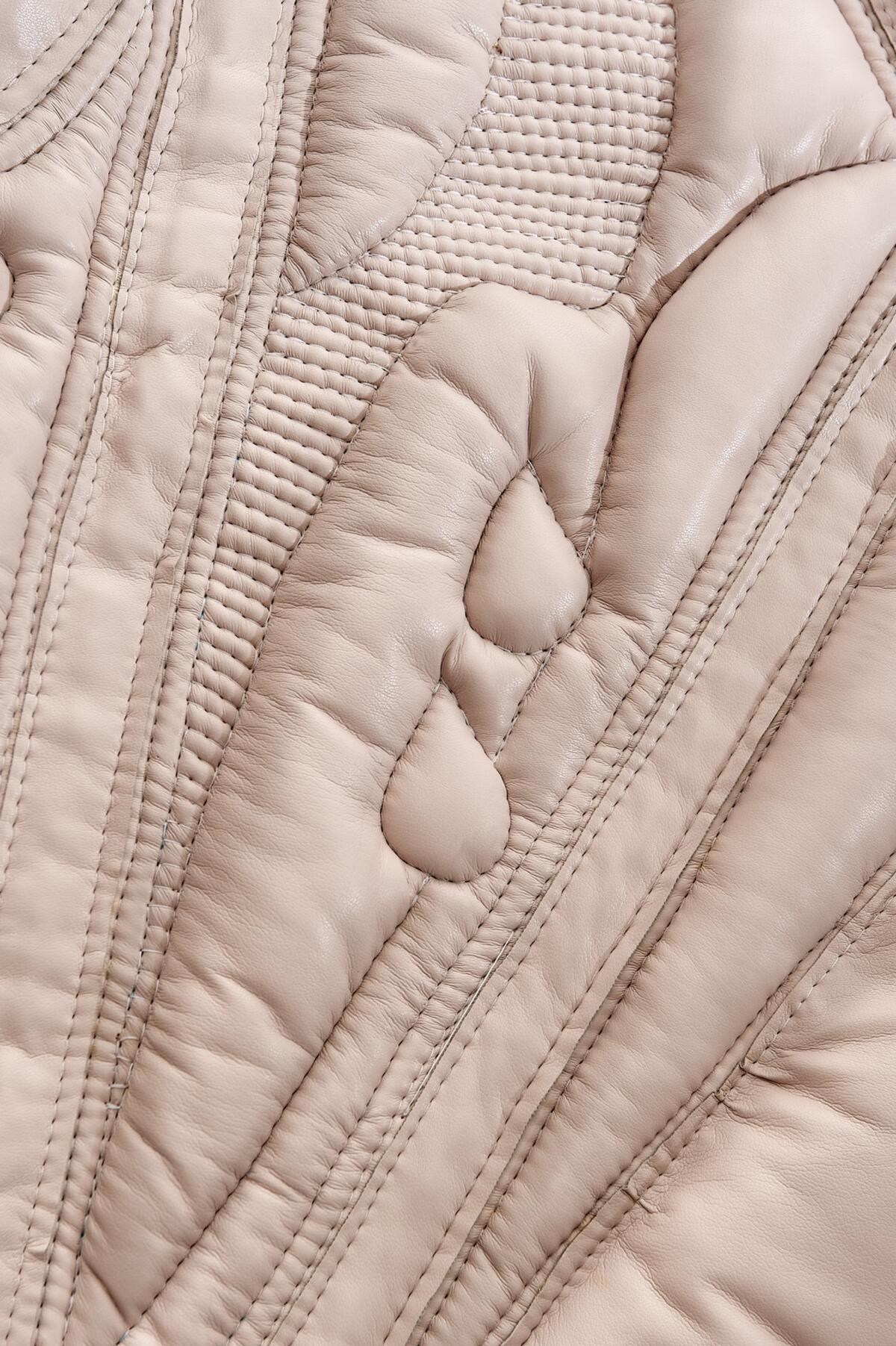

Adrian Kiss was born in 1990 in Miercurea Ciuc. He graduated from the Central Saint Martins College of Art and Design in London. His solo exhibitions have been hosted at FUTURA in Prague, Make up Gallery in Košice, A.P.A. Gallery, Horizont Gallery, Art+Text Gallery, Parthenon-Frieze Hall, Easttopics and Pince in Budapest. His work has been shown in numerous Hungarian and international group exhibitions, including the Museum of Contemporary Art in Zagreb, Künstlerhaus, Halle für Kunst&Medien in Graz, Centre d’art in Neuchâtel, BOZAR in Brussels, Kim? Contemporary Art Center in Riga, Bunkier Sztuki Gallery of Contemporary Art in Krakow, MAGMA Contemporary Art Exhibition Space in Sfântu Gheorghe, as well as Miskolc Gallery in Miskolc, Hungarian National Museum, Ludwig Museum, Deák Erika Gallery, New Budapest Gallery, Société, art quarter budapest, Trafó Gallery in Budapest. The Artist is receiving the Gyula Dekovits Art Scholarship in 2021.
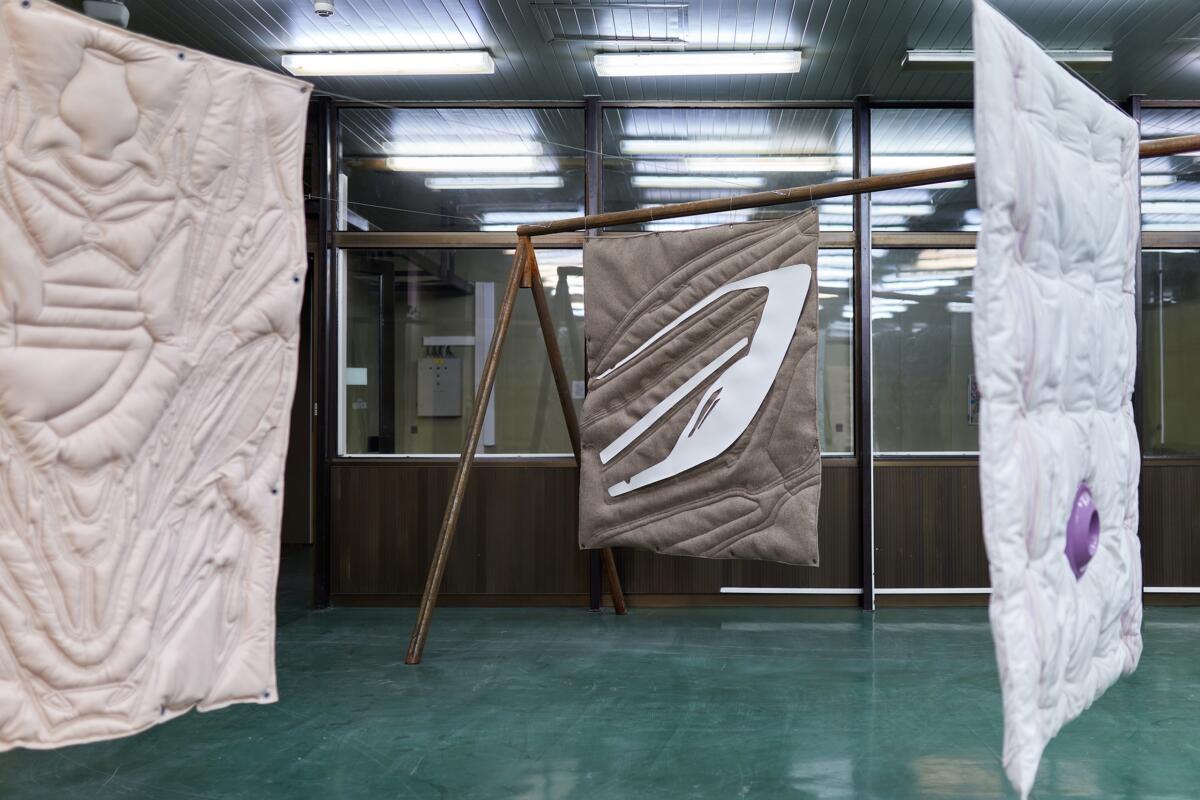
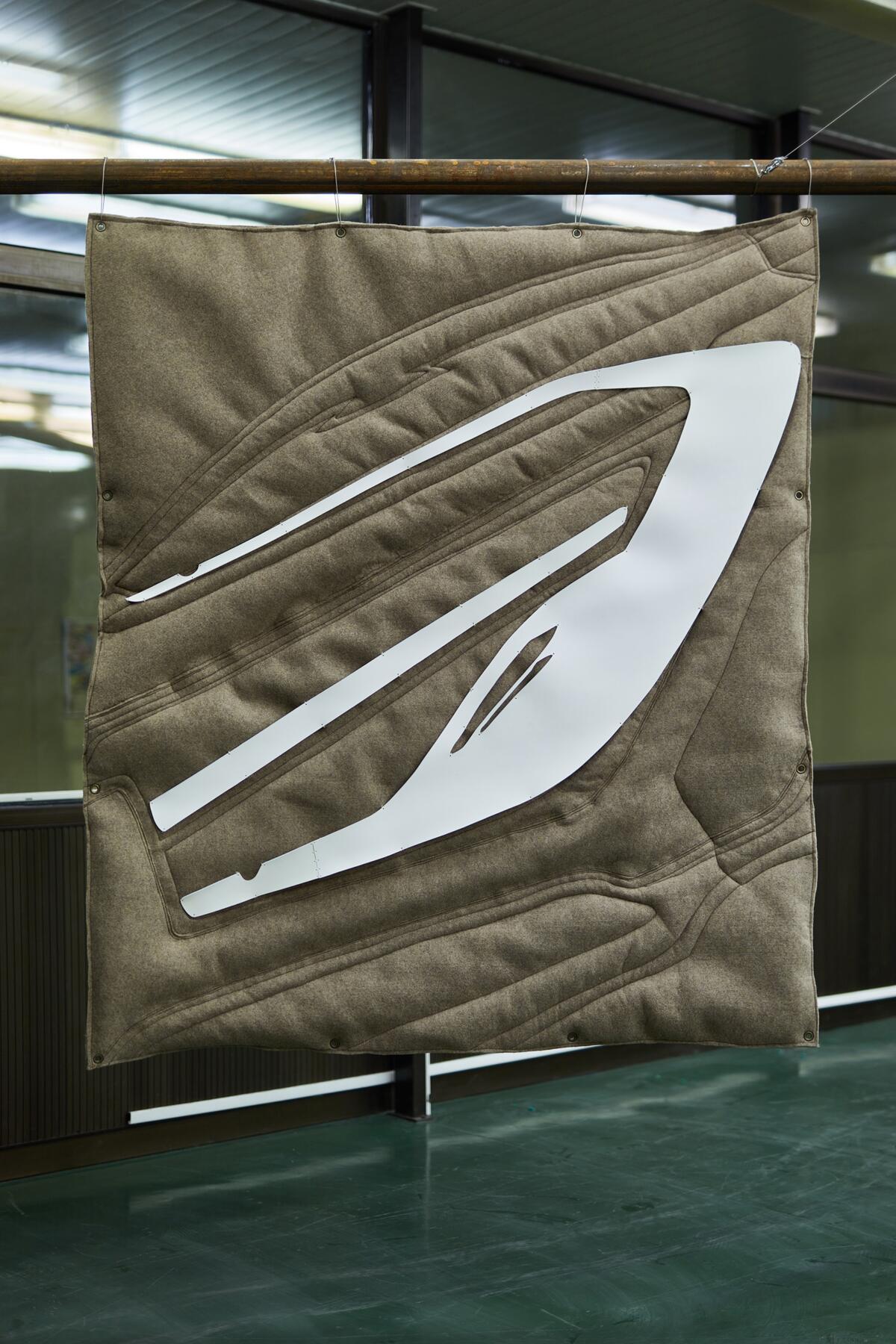
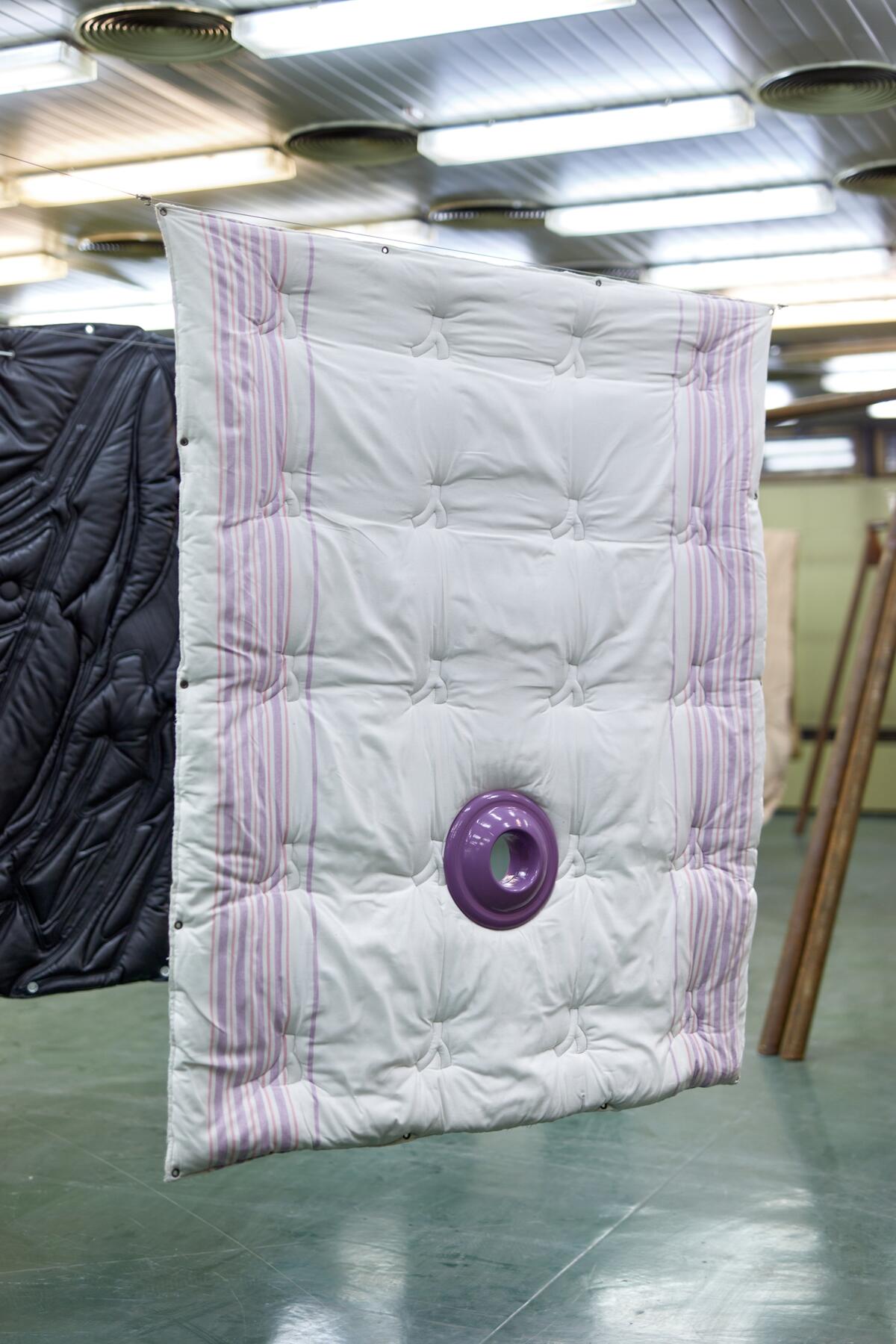

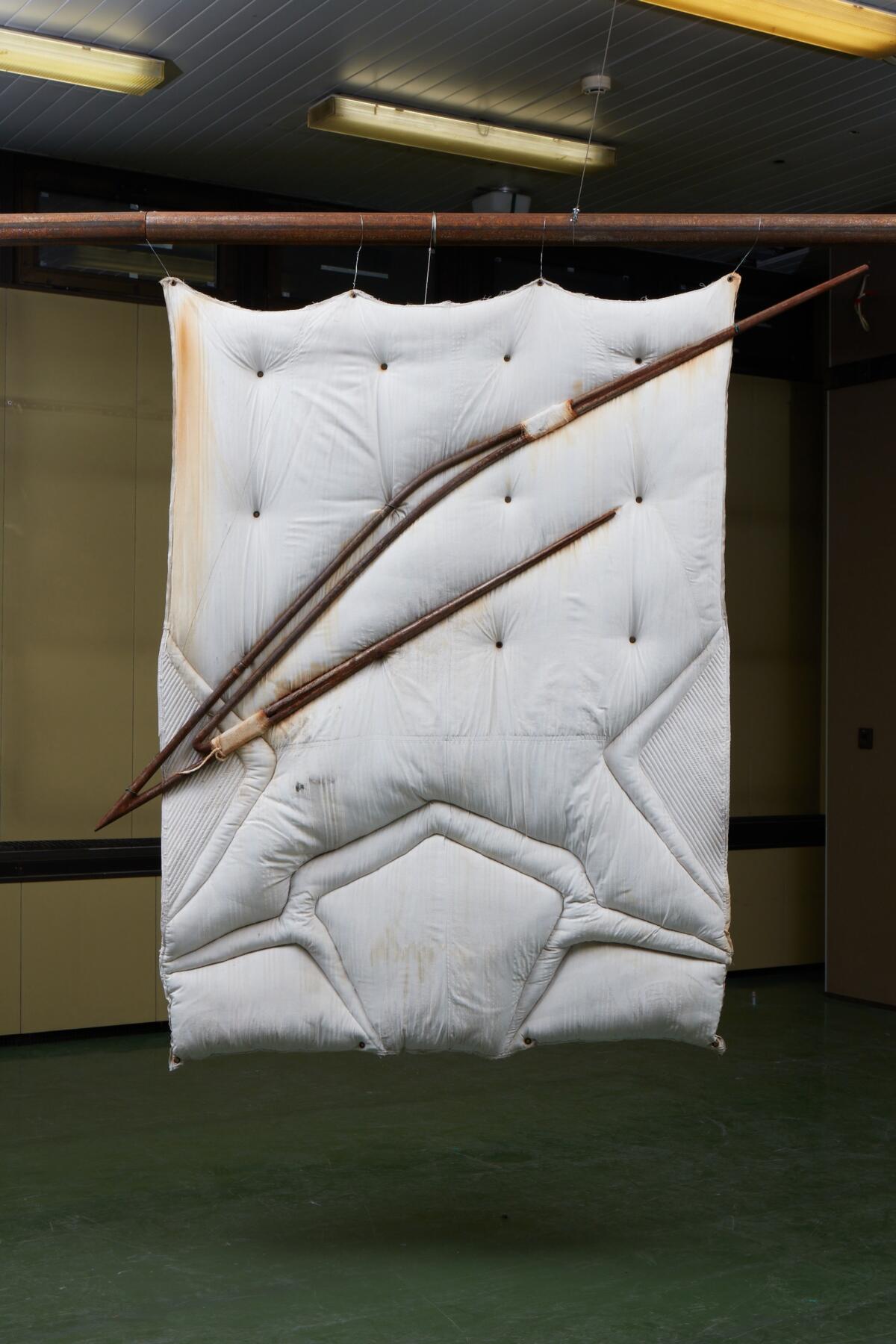
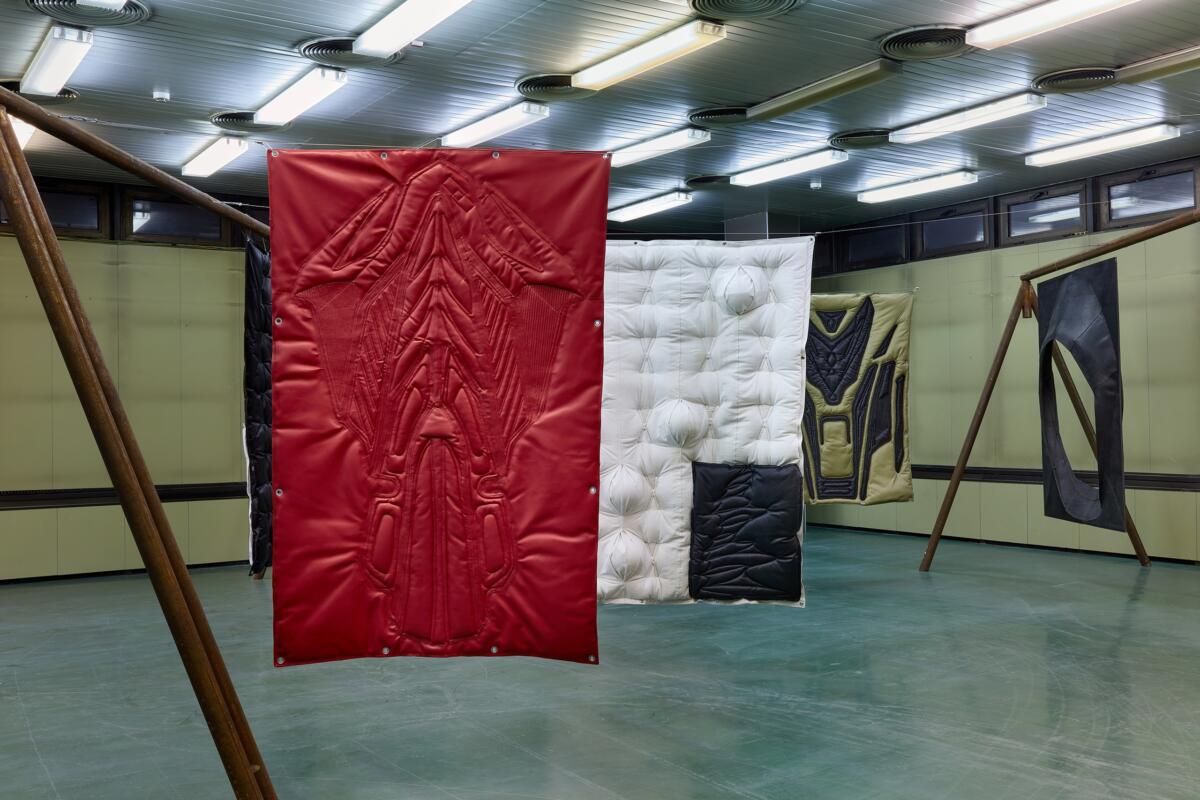
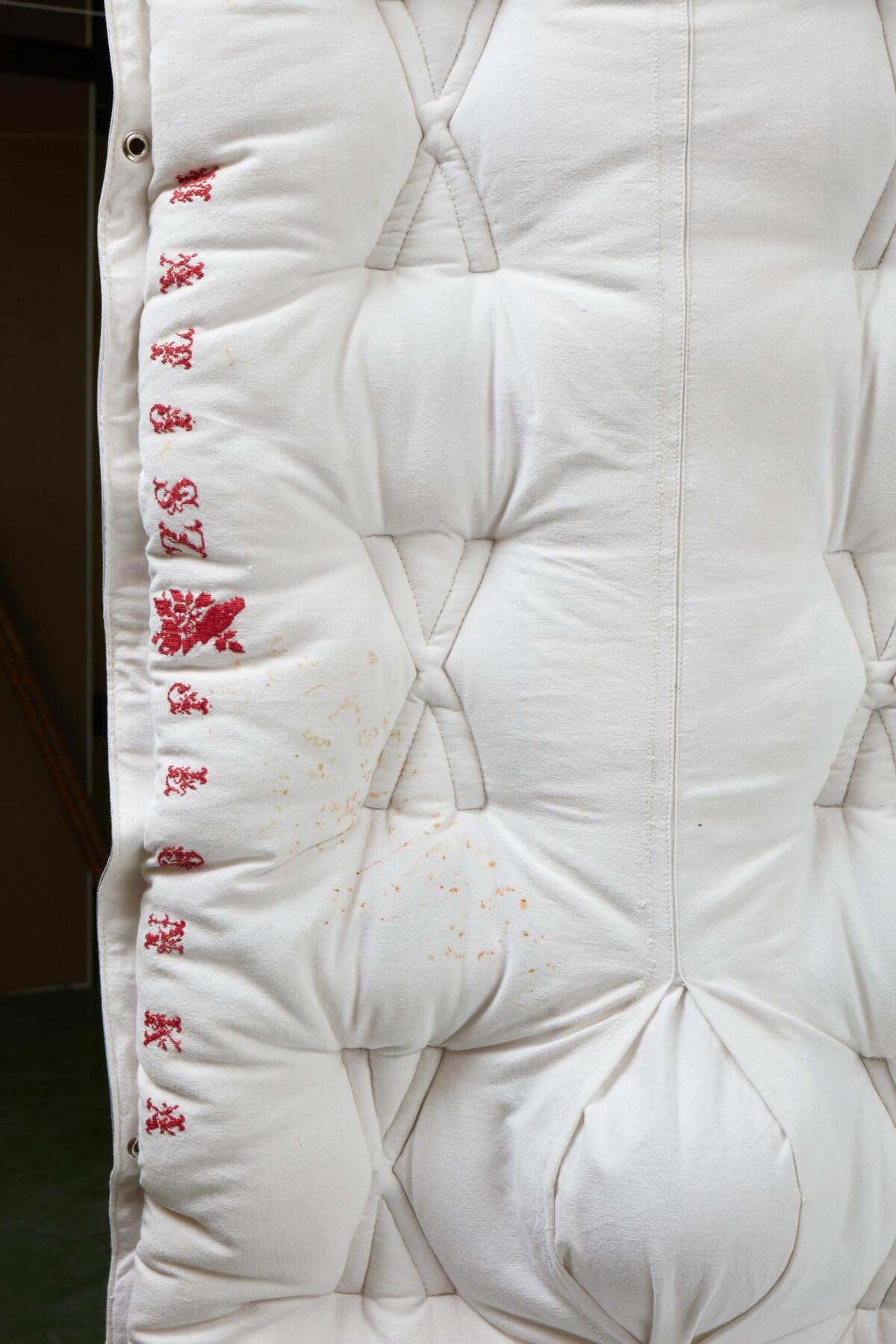

Imprint
| Artist | Adrian Kiss |
| Exhibition | Dunyha tomorrow |
| Place / venue | Nyolcésfél |
| Dates | 5 Nov - 17 Dec. 2021 |
| Exhibition design | acb Gallery, Budapest |
| Photos | Images: Dávid Biró and Imre Kiss |
| Website | acbgaleria.hu/en/artist/kiss_adrian |
| Index | acb Gallery Adrian Kiss |

